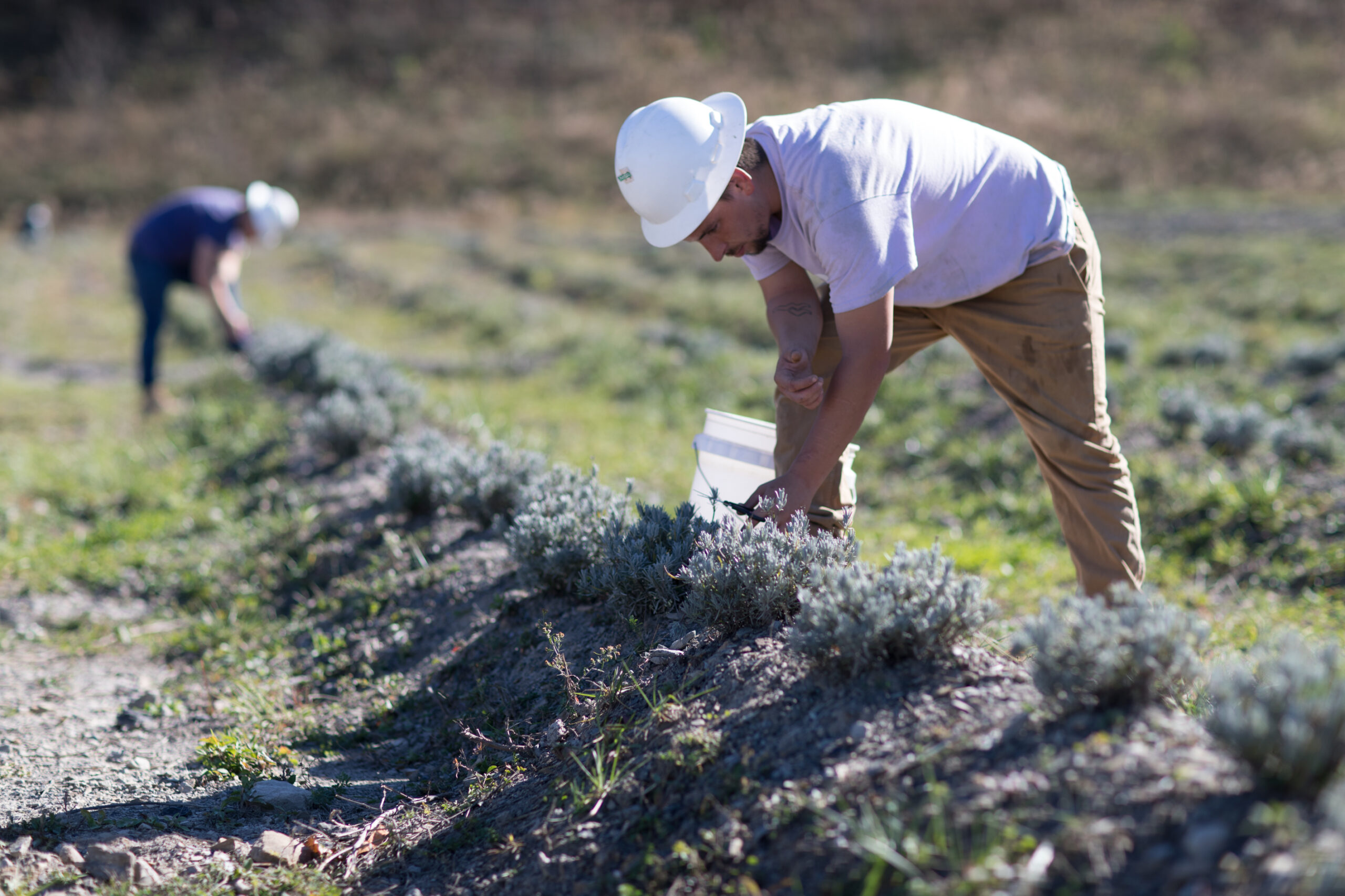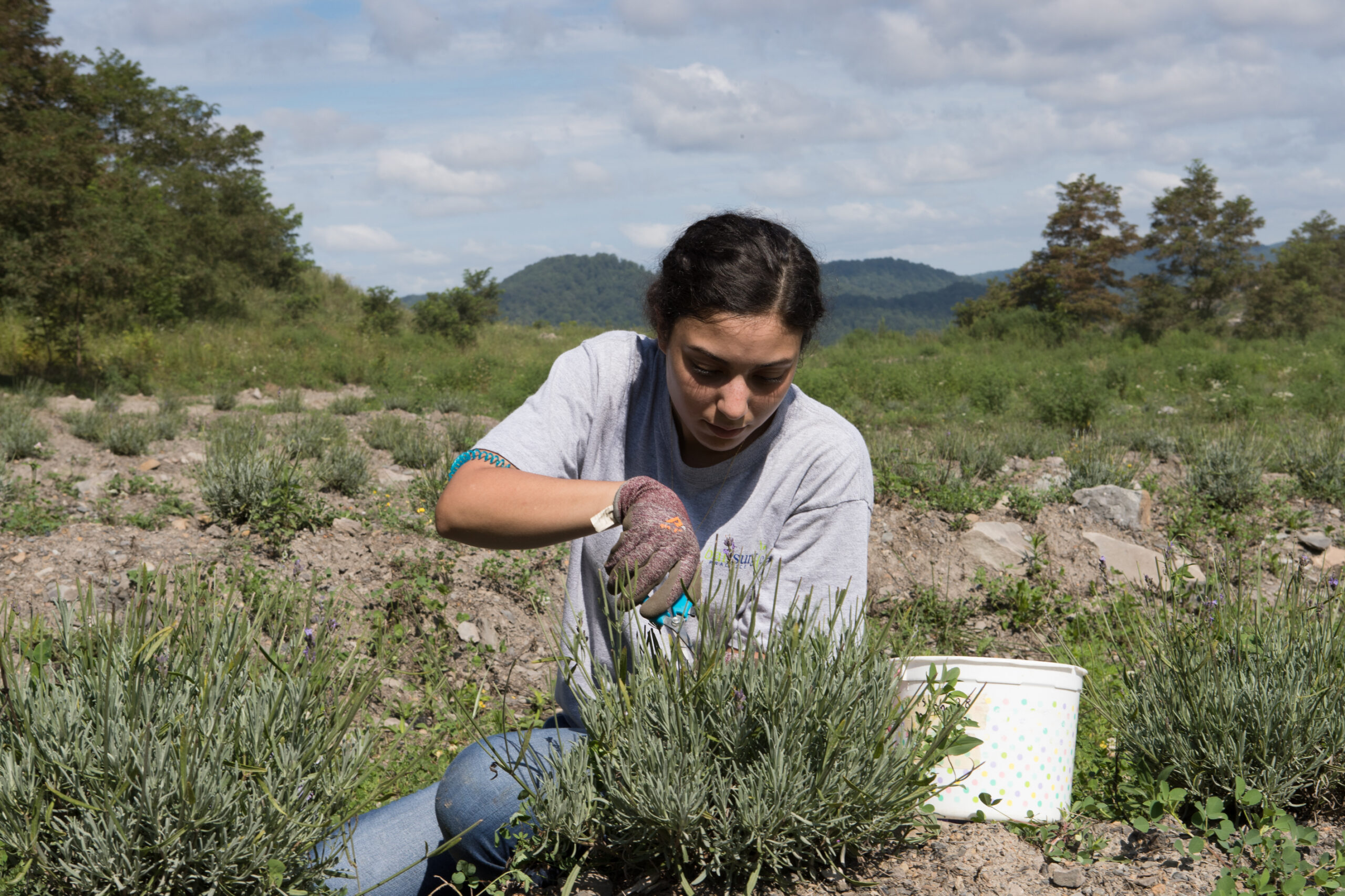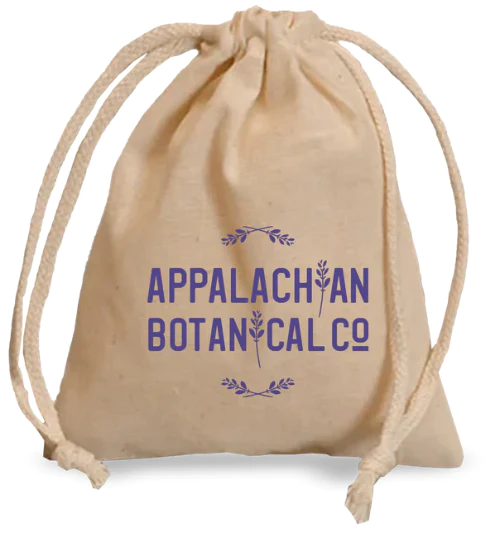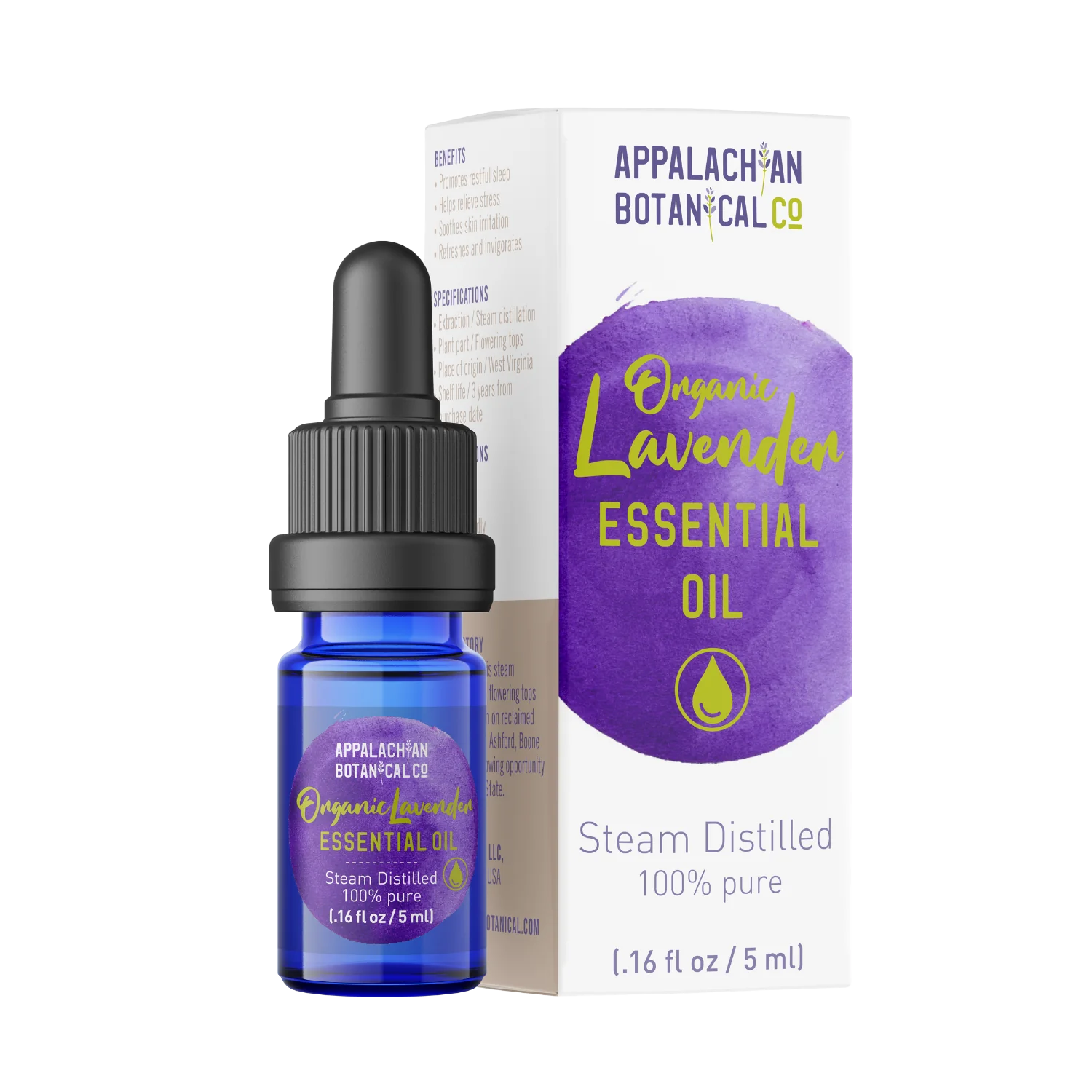A Q&A blog by Jocelyn Sheppard, Founder & President at Appalachian Botanical Company, and CCJ’s Event Coordinator Allison Evans


Allison: Jocelyn, it was so nice making your acquaintance at the Washington Farmers Market this past summer. Can you please tell us more about Appalachian Botanical Co.?
Jocelyn: Appalachian Botanical Co. is growing lavender and raising bees on post-use mine land in Boone County, WV. So far, it’s going well, and we have about 50 acres under cultivation. We have a 15-year agricultural lease with the landowner, and we have the cooperation of the coal operator that holds the mining reclamation permit with the West Virginia Department of Environmental Protection.
Our fields are on land designated as being in Phase III reclamation, meaning the coal operator previously ensured that the water there is of good quality (Phase I) and the land and soil have been restored to a predetermined state (Phase II). Phase III is where the coal operator demonstrates that the land has been placed back into productive use. Based on our successful cultivation and harvest of lavender, the coal operator should soon receive their Phase III bond release within about 4 years of our start.
Besides giving the land a second chance, we’re committed to providing second chance jobs to local residents: over 90% of our hires are from Boone County. We pay above minimum wages to workers who often struggle to secure employment due to a variety of reasons including prior incarceration, substance use issues, lack of a high school diploma, and more. For many of our workers, these jobs mean a chance to learn new skills, have steady employment, and take good care of themselves and their families. In cases where someone isn’t ready to handle the pressures of their job, and needs to step away, we typically leave the door open for future employment with us.
Our commitment to the environment has meant embracing organic cultivation practices and adding bees (to support the bee population, promote pollination, and produce some excellent raw lavender, goldenrod, wildflower, and plain honey). Our zero-waste philosophy means we put every part of the lavender plant to use. Steam distillation of the flowering tops produces the essential oil and hydrosol we bottle and sell, and also use in our body cream and body oil products. The buds go into our sachets and in our pink sea salt seasoning blend. Last but certainly not least, our stem bundles add lavender aroma to fire pits, campfires, fireplaces, and grills (yes, you can smoke food with lavender).
Over the last 3.5 years, we’ve met the technical challenge of growing, harvesting, and distilling lavender and making some very good products. And we’ve had success on the market side: our products are now sold in 40+ retail locations (including Kaleidoscope II on East Walnut St in Washington) and we’re shipping orders to all corners of the U.S. Visit our website to browse our products, sign up for our newsletter, and become part of the Appalachian Botanical Co community.
Allison: That is amazing that you are bringing life back into the land! Is reclaiming coalfields something you are passionate about, or did the opportunity just come up and you took it? How did you get into this kind of work? What was your inspiration?
Jocelyn: I trained as an educator and librarian, and later worked as an independent consultant with tech startups and nonprofits, mostly in West Virginia and Western Pennsylvania (though I had clients in Hawaii and Maine, too). I loved working with smart, passionate people who had innovations with the potential to help people and society. They just needed my help with goal setting and planning, or with telling their story to a broader audience. I got into coalfield reclamation through a grant writing gig. In 2016, I was hired to co-write an Appalachian Regional Commission POWER grant where the goal was to demonstrate that lavender would grow and thrive on coalfield land. We won the grant and I stayed on the project team as a planner and writer. It was after that project ended that I realized I wanted to keep the model alive by starting a company. My inspiration was two-fold: 1) I’ve always believed in the importance of bringing together people and resources (for example, land, lavender and local talent) to create something new and valuable; and 2) I’ve always believed that it’s important for more of the wealth generated by the coalfields remain in coalfield communities.
Allison: It seems like you have created something both new and valuable! You mentioned something I wanted to dig into a little deeper: Why is hiring folks that are usually unhireable elsewhere important to Appalachian Botanical Co?
Jocelyn: As long as people are willing to listen, learn, show up, work hard, and are committed to self-care (e.g., staying clean and sober), then it doesn’t have to matter that they lack a high school diploma or have had to weather other personal and societal challenges. While we can’t erase the impact of poverty, abuse, or a social safety net filled with holes, we can say to a new hire, “your experiences so far don’t have to define you and limit you for the rest of your life.” It’s tremendously satisfying to see people embrace this opportunity.


Allison: I truly wish more employers thought like you Jocelyn! I see you have this on your website: “We are hiring and training previously unemployed or underemployed workers, some of whom lost their jobs during the coal industry downturn over the past several years.” Can you elaborate on this? We would love to know more about how you have helped folks that the coal industry has left behind?
Jocelyn: Former coal industry workers bring with them good work and safety habits, and the willingness and ability to learn new skills. Farming, distillation, and manufacturing all involve a lot of equipment, including small engines and technical troubleshooting. Some of our former miners are among our best problem solvers. As a young company, we can’t afford to match the wages these workers used to earn, but we can offer them above minimum wage pay, a supportive and affirming workplace, and jobs that let them stay in their home communities. And while a few of the former miners miss the better pay, several of them have told us that they don’t miss working underground!
Allison: I bet they don’t miss it. Coal mining is dangerous and hard. My great grandpa was a coal miner. Jocelyn, are you open to more retail stores carrying Appalachian Botanical Co. products? If so, how should folks go about requesting to carry your products in their stores?
Jocelyn: We would love to be carried in more retail stores throughout Western Pennsylvania and West Virginia and across the country! Interested retailers should contact me at jsheppard@appalachianbotanical.com or check out our product line on the wholesale marketplace Handshake. We’re also about to go live on Faire, an online wholesale market for independent brands.
Allison: Great! Hopefully some local stores will contact you to start carrying your amazing products! I was wondering, what is your favorite product you make and why?
Jocelyn: The lavender cream. It has a gorgeous and calming scent and it’s formulated for face, body and hands. I use it on my face in the winter because it’s lightweight and protective. When customers try the cream, “oooohhh” is usually the first thing they say, followed by “it’s so light and absorbent, it’s not at all greasy.” I’m proud that our chief technical officer Marina Sawyer formulated this cream that people find so amazing.
Allison: Wow, the lavender cream sounds amazing! I can’t wait to try it. I have tried your lavender essential oil; it smells so clean and it’s very calming. Thank you so much for doing the work you do and for telling me and our CCJ community more about Appalachian Botanical Company and how you got started! Hopefully our members will find this process of reclaiming coal mines as fascinating and exciting as we do! Thank you so much for telling your story!
If you wish to contact Jocelyn Sheppard, you can email her at jsheppard@appalachianbotanical.com or call 304-956-4015.
